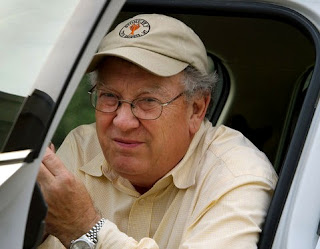 |
| Former Navarro County prosecutor John Jackson |
Nearly six years before before Navarro County prosecutor John Jackson used a jailhouse snitch to help send Cameron Todd Willingham to his death, Jackson made similar use of an inmate informant in a different death penalty trial.
In both cases, the informants later said their testimony resulted from secret deals they made with the prosecutor, which were withheld from defense lawyers.
Jackson had strong evidence in the December 1986 trial of Ernest Baldree for murdering a husband and wife as he stole cash and jewelry. But Jackson also bolstered his case with testimony from Kyle Barnett, a convicted drug user and burglar, who told the jury that Baldree confessed to the crime while they were both inmates in the Navarro County Jail. Baldree was executed in 1997.
On September 10, 1991, 11 months before Willingham went on trial, Barnett signed a sworn affidavit for lawyers working on Baldree’s appeal. Barnett said that Jackson, along with Navarro County District Attorney Patrick Batchelor, pressured him to testify against Baldree in exchange for favorable treatment in his own case.
The scenario that Barnett described echoes
allegations later made in the far more famous case of Cameron Todd Willingham, who was executed in 2004 for the arson murder of his three young daughters.
Last March, the Texas State Bar filed a
formal accusation of misconduct against Jackson, accusing him of obstruction of justice, making false statements and concealing evidence favorable to Willingham. The bar action accused Jackson of failing to disclose to Willingham’s defense a deal with Johnny Webb, a jailhouse informant who testified that Willingham confessed to the crime while they were both in the Navarro County Jail.
Webb now says his testimony was false—that Willingham never confessed—and that Jackson threatened him with a lengthy jail term if he did not help the prosecution, so the two made a secret deal.
Jackson has denied making any deal with Webb, and says he helped Webb because he was facing death threats because of his testimony.
Source: The Marshall Project, Maurice Possley, Maurice Chammah, August 18, 2015
Related:










